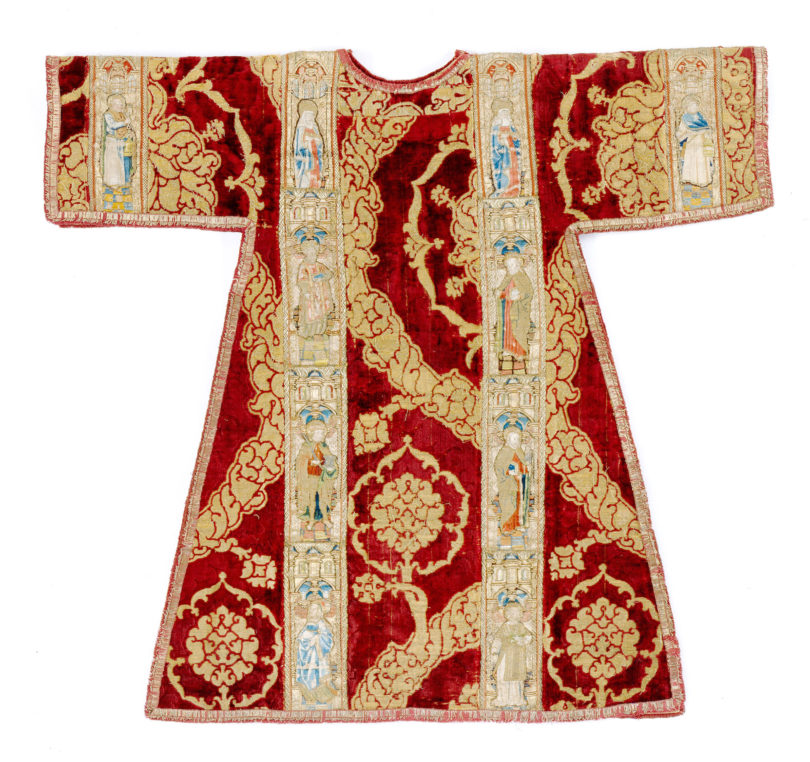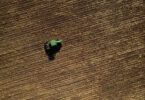Athens, Ga. – The Georgia Museum of Art at the University of Georgia will present the exhibition “The Material of Culture: Renaissance Medals and Textiles from the Ulrich A. Middeldorf Collection” Oct. 26 to Jan. 12. Comprising works on loan from Indiana University Art Museum, this exhibition features rarely seen works of Italian Renaissance and Baroque decorative arts collected by German-American art historian Ulrich A. Middeldorf.
The exhibition will also feature a 15th-century dalmatic, or liturgical robe, borrowed from the Detroit Institute of Arts. The dalmatic will provide context for the fragmented pieces of liturgical textiles from the Middeldorf collection. Other objects in the exhibition convey changing styles and techniques in medals and textiles during the Italian Renaissance and Baroque period. Perri Lee Roberts, professor of art history at the University of Miami, is curator of the exhibition and author of its accompanying catalogue, which the museum is publishing.
Middeldorf was a respected collector and scholar who published more than 200 articles and books on 15th- and 16th-century Italian sculpture and drawing. Although he was born in Germany, the growing power of the Nazis persuaded Middeldorf to immigrate to the U.S. in 1935. During his time in the U.S., he worked as professor and chair of the art history department at the University of Chicago, director and president of the College Art Association, chair of the Fifth Ward Art Center of Chicago and honorary curator of sculpture at the Art Institute of Chicago. Middeldorf died in Florence, Italy, a city he loved, in 1983. For Middeldorf, the decorative arts, such as those featured in this exhibition, were as valuable as the fine arts of painting, sculpture and drawing.
The popularity of portrait medals and plaquettes in Renaissance Italy stemmed from a humanist appreciation for individual character and achievement. Most of the medals are consistent with previous pictorial traditions of depicting a bust portrait of the sitter, usually in profile, and symbolic imagery on the reverse. These medals were created for private distribution among friends or social equals to commemorate accomplishments.
The medals provided a sort of immortality for those depicted and sometimes even served as intimate gifts of friendship or love. Plaquettes were generally small, low-relief sculptures of bronze or lead decorated with narrative scenes on one side. Plaquettes were collected, used as desk ornaments or included on liturgical objects such as tabernacles, portable altars and candlesticks.
“There is perhaps more sense in collecting medals and plaquettes than altarpieces and monumental sculpture,” Middeldorf wrote. “While the latter were made for definite purposes, so that they lose a great deal of their meaning once they are torn from their original context, medals and plaquettes never, or rarely, had any other home than that of the collector.”
While medals were usually created for private consumption, works of fine textiles were often displayed in public to convey class. Middeldorf’s textiles are in fragments as many luxury Italian Renaissance and Baroque textiles were transformed, destroyed or melted down for their precious metal threads. The samples in the exhibition come from many different sources including clothing, liturgical vestments, honor cloths and upholstery.
The museum will host a holiday open house at which Roberts will speak on Dec. 7, following Family Day.
This exhibition is sponsored by the W. Newton Morris Charitable Foundation and the Friends of the Georgia Museum of Art.
Museum Information
Individuals, foundations and corporations provide additional museum support through their gifts to the University of Georgia Foundation. The Georgia Museum of Art is located in the Performing and Visual Arts Complex on the East Campus of the University of Georgia. The address is 90 Carlton St., University of Georgia, Athens, Ga. 30602- 6719. For more information, including hours, see http://www.georgiamuseum.org or call 706-542-4662.







